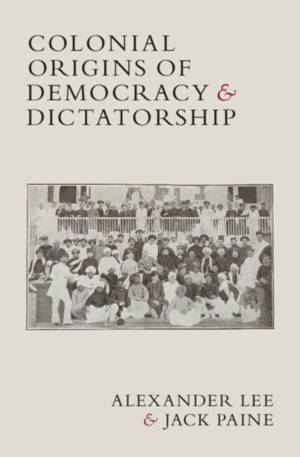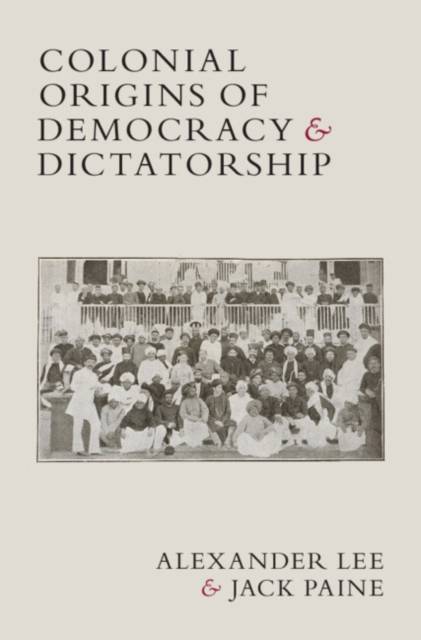
Door een staking bij bpost kan je online bestelling op dit moment iets langer onderweg zijn dan voorzien. Dringend iets nodig? Onze winkels ontvangen jou met open armen!
- Afhalen na 1 uur in een winkel met voorraad
- Gratis thuislevering in België vanaf € 30
- Ruim aanbod met 7 miljoen producten
Door een staking bij bpost kan je online bestelling op dit moment iets langer onderweg zijn dan voorzien. Dringend iets nodig? Onze winkels ontvangen jou met open armen!
- Afhalen na 1 uur in een winkel met voorraad
- Gratis thuislevering in België vanaf € 30
- Ruim aanbod met 7 miljoen producten
Zoeken
€ 57,95
+ 115 punten
Omschrijving
Why are some countries more democratic than others? For most non-European countries, elections began under Western colonial rule. However, existing research largely overlooks these democratic origins. Analyzing a global sample of colonies across four centuries, this book explains the emergence of colonial electoral institutions and their lasting impact. The degree of democracy in the metropole, the size of the white settler population, and pressure from non-Europeans all shaped the timing and form of colonial elections. White settlers and non-white middle classes educated in the colonizer's language usually gained early elections but settler minorities resisted subsequent franchise expansion. Authoritarian metropoles blocked elections entirely. Countries with lengthy exposure to competitive colonial institutions tended to consolidate democracies after independence. By contrast, countries with shorter electoral episodes usually shed democratic institutions and countries that were denied colonial elections consolidated stable dictatorships. Regime trajectories shaped by colonial rule persist to the present day.
Specificaties
Betrokkenen
- Auteur(s):
- Uitgeverij:
Inhoud
- Aantal bladzijden:
- 320
- Taal:
- Engels
Eigenschappen
- Productcode (EAN):
- 9781009423533
- Verschijningsdatum:
- 30/05/2024
- Uitvoering:
- Hardcover
- Formaat:
- Genaaid
- Afmetingen:
- 147 mm x 221 mm
- Gewicht:
- 589 g

Alleen bij Standaard Boekhandel
+ 115 punten op je klantenkaart van Standaard Boekhandel
Beoordelingen
We publiceren alleen reviews die voldoen aan de voorwaarden voor reviews. Bekijk onze voorwaarden voor reviews.











